- Home
- Todd Strasser
The Wave Page 2
The Wave Read online
Page 2
Near the front of the room, a black youth named Eric raised his hand urgently. “That’s crazy,” he said. “How could you slaughter ten million people without somebody noticing?”
“Yeah,” said Brad, the boy who had picked on Robert Billings before class began. “That can’t be true.”
It was obvious to Ben that the film had affected a large part of the class, and he was pleased. It was good to see them concerned about something. “Well,” he said to Eric and Brad, “I can only tell you that after the war the Germans claimed they knew nothing of the concentration camps or the killings.”
Now Laurie Saunders raised her hand. “But Eric’s right,” she said. “How could the Germans sit back while the Nazis slaughtered people all around them and say they didn’t know about it? How could they do that? How could they even say that?”
“All I can tell you,” Ben said, “is that the Nazis were highly organized and feared. The behavior of the rest of the German population is a mystery—why they didn’t try to stop it, how they could say they didn’t know. We just don’t know the answers.”
Eric’s hand was up again. “All I can say is, I would never let such a small minority of people rule the majority.”
“Yeah,” said Brad. “I wouldn’t let a couple of Nazis scare me into pretending I didn’t see or hear anything.”
There were other hands raised with questions, but before Ben could call on anyone, the bell rang out and the class was rushing out into the hall.
David Collins stood up. His stomach was grumbling like mad. That morning he’d gotten up late and had to skip his usual three-course breakfast to make it to school on time. Even though the film Mr. Ross had shown really bothered him, he couldn’t help thinking that next period was lunch.
He looked over at Laurie Saunders, his girlfriend, who was still sitting in her seat. “Come on, Laurie,” he urged her. “We have to get down to the cafeteria fast. You know how long the line gets.”
But Laurie waved him to go without her. “I’ll catch up later.”
David scowled. He was torn between waiting for his girlfriend and filling his growling stomach. The stomach won, and David took off down the hall.
After he was gone, Laurie got up from her seat and looked at Mr. Ross. There were only a couple of kids left in the room now. And except for Robert Billings, who was just waking up from his nap, they were the ones who seemed the most disturbed about the film. “I can’t even believe that all the Nazis were that cruel,” Laurie told her teacher. “I don’t believe anyone could be that cruel.”
Ben nodded. “After the war, many Nazis tried to excuse their behavior by claiming they were only following orders and that they would have been killed themselves if they hadn’t.”
Laurie shook her head. “No, that’s no excuse. They could have run away. They could have fought back. They had their own eyes and their own minds. They could think for themselves. Nobody would just follow an order like that.”
“But that’s what they said,” Ben told her.
Laurie shook her head again. “It’s sick,” she said, her voice filled with revulsion. “Just totally sick.”
Ben could only nod in agreement.
Robert Billings was trying to sneak past Ben’s desk.
“Robert,” Ben said. “Wait a minute.”
The boy froze, but could not look his teacher in the eye.
“Are you getting enough sleep at home?” Ben asked.
Robert nodded dumbly.
Ben sighed. All semester he had been trying to get through to this boy. He couldn’t stand seeing him picked on by the other students and it dismayed him that Robert didn’t at least try to participate in class. “Robert,” his teacher said sternly, “if you don’t start participating in this class I will have to fail you. You’ll never graduate at this rate.”
Robert glanced at his teacher and then looked away again.
“Don’t you have anything to say?” Ben asked.
Robert shrugged. “I don’t care,” he said.
“What do you mean you don’t care?” Ben asked.
Robert took a few steps toward the door. Ben could see that he was uncomfortable about being questioned. “Robert?”
The boy stopped, but he still could not look at his teacher. “I wouldn’t do any good anyway,” he mumbled.
Ben wondered what he could say. Robert’s case was a tough one: the younger brother wallowing in the shadow of an older brother who had been the quintessential model student and big man on campus. Jeff Billings had been an all-conference pitcher in high school and was now in the Baltimore Orioles farm system while he studied medicine in the off-season. In school he’d been a straight-A student who excelled at everything he did. The kind of guy even Ben had despised in high school.
Seeing that he could never compete with his brother’s achievements, Robert had apparently decided it was better not even to try.
“Listen, Robert,” Ben said, “no one expects you to be another Jeff Billings.”
Robert glanced quickly at Ben and then started chewing nervously on his thumbnail.
“All we’re asking is that you try,” Ben said.
“I have to go,” Robert said, looking down at the floor.
“I don’t even care about sports, Robert,” Ben said. But the boy had already begun to move slowly toward the door.
CHAPTER 3
David Collins was sitting in the outdoor courtyard next to the cafeteria. He had already wolfed down half his lunch by the time Laurie arrived, and he was beginning to feel like a normal human being again. He watched Laurie put her tray down next to his and then noticed that Robert Billings was also headed for the courtyard.
“Hey, look,” David whispered as Laurie sat down. They watched as Robert stepped out of the cafeteria carrying a tray, looking for a place to eat. True to form, he had already started eating and stood in the doorway with half a hot dog sticking out of his mouth.
There were two girls from Mr. Ross’s history class sitting at the table Robert chose. As Robert set his tray down, they both stood up and took their trays to another table. Robert pretended he hadn’t noticed.
David shook his head. “Gordon High’s very own Untouchable,” he mumbled.
“Do you think there’s something really wrong with him?” Laurie asked.
David shrugged. “I don’t know. He’s been pretty strange for as long as I can remember. Then again, if people treated me like that, I’d probably be pretty strange too. It’s just weird that he and his brother could come from the same family.”
“Did I ever tell you that my mother knows his mother?” Laurie asked.
“His mother ever talk about him?” David asked.
“No. Except I think she told me once that they had him tested and he really does have a normal I.Q. He’s not really dumb or anything.”
“Just weird,” David said and went back to eating his lunch. But Laurie only picked at hers. She seemed preoccupied.
“What is it?” David asked.
“That film, David,” Laurie answered. “It really bothers me. Doesn’t it bother you?”
David thought for a moment. Then he said, “Yeah, sure, as something horrible that happened once, it bothers me. But that was a long time ago, Laurie. To me it’s like a piece of history. You can’t change what happened then.”
“But you can’t forget it,” Laurie said. She tried a bite of her hamburger, then made a face and put it down.
“Well, you can’t go around being bummed out about it for the rest of your life either,” David said. He eyed Laurie’s uneaten hamburger. “By the way, you gonna eat that?”
Laurie shook her head. The movie had left her without much of an appetite. “Help yourself.”
Not only did David help himself to her burger, he finished off her fries, salad, and ice cream as well. Laurie looked in his direction, but her eyes were distant.
“Hmm.” David wiped his lips with a napkin.
“Would you like anything more?”
Laurie asked.
“Well, to tell you the truth …”
“Hey, is this seat taken?” someone behind them said.
“I was here first!” said another voice.
David and Laurie looked up to find Amy Smith and Brian Ammon, the quarterback, both heading for their table from opposite directions.
“What do you mean you were here first?” Brian asked.
“Well, I meant I wanted to be here first,” Amy replied.
“Meaning to be first doesn’t count,” Brian said. “Besides, I have to talk to Dave about football.”
“And I have to talk to Laurie,” Amy said.
“What about?” Brian asked.
“Well, about keeping her company while you talk about boring football.”
“Stop it,” Laurie said. “There’s room for two.”
“But with them you need room for three,” Amy said, nodding at Brian and David.
“Hardy har har,” Brian grunted.
David and Laurie slid over, and Amy and Brian squeezed in next to them at the table. Amy was right about room for three—Brian was carrying two full lunch trays.
“Hey, what are you doing with all this food?” David asked, patting Brian on the back. Although he was the team’s quarterback, Brian was not very big. David stood a full head taller than him.
“I gotta gain some weight,” Brian said as he started to wolf down his lunch. “I’m gonna need every pound I’ve got against those guys from Clarkstown on Saturday. They are big. I mean, huge. I hear they got a linebacker who stands six three and weighs two-twenty.”
“I don’t see what you’re worried about,” Amy said. “No one that heavy can run very fast.”
Brian rolled his eyes. “He doesn’t have to run, Amy. All he has to do is squash quarterbacks.”
“Will you have a chance on Saturday?” Laurie asked. She was thinking about the story they would need for The Grapevine.
David shrugged. “I don’t know. The team’s pretty disorganized. We’re way behind on learning our plays and stuff. Half the guys don’t even show up for practice.”
“Yeah,” Brian agreed. “Coach Schiller said he was gonna throw anyone who didn’t show up for practice off the team. But if he did that we wouldn’t even have enough guys to play.”
No one seemed to have anything more to say about football, so Brian bit into his second hamburger.
David’s thoughts drifted to other pressing matters. “Hey, is anyone here good at calculus?”
“Why are you taking calculus?” Amy asked.
“You need it for engineering,” David said.
“So why not wait till college?” Brian asked.
“I heard it was so hard you have to take it twice to understand it,” David explained. “So I figured I’d take it once now and once later.”
Amy nudged Laurie. “I think your boyfriend is strange,” she said.
“Talk about strange,” Brian whispered, nodding toward Robert Billings.
They all looked. Robert was sitting alone at his table, engrossed in a Spider-Man comic book. His lips moved as he read and there was a red streak of catsup on his chin.
“You see him sleep through the whole movie?” Brian asked.
“Don’t remind Laurie,” David told him. “She’s upset.”
“What, about that movie?” Brian asked.
Laurie gave David a dirty look. “Do you have to tell everybody?”
“Well, it’s true, isn’t it?” David asked.
“Oh, just leave me alone,” Laurie answered.
“I can understand how you feel,” Amy told her. “I thought it was just awful.”
Laurie turned to David. “There, you see? I’m not the only one that it bothered.”
“Hey,” David said defensively. “I didn’t say I wasn’t bothered by it. I just said it’s over now. Forget about it. It happened once and the world learned its lesson. It’ll never happen again.”
“I hope not,” Laurie said, picking up her tray.
“Where’re you going?” David asked her.
“I have to go work on The Grapevine,” Laurie said.
“Wait,” Amy said, “I’ll go with you.”
David and Brian watched the two girls go.
“Gee, she really is upset about that movie, isn’t she?” Brian said.
“Yeah.” David nodded. “You know, she always takes stuff like that too seriously.”
Amy Smith and Laurie Saunders sat in The Grapevine office talking. Amy wasn’t on the newspaper staff, but she often hung out with Laurie in the publications office. The office door could be locked, and Amy would sit inside by an open window, holding a cigarette outside and blowing the smoke out. If a teacher came in, she could drop the cigarette to the ground and there would hardly be any smell of smoke in the room.
“That was an awful movie,” Amy said.
Laurie nodded quietly.
“Are you and David having a fight?” her friend asked.
“Oh, not really.” Laurie couldn’t help smiling slightly. “I just wish he would take something besides football seriously. He’s—I don’t know—he’s such a jock sometimes.”
“But he gets good grades,” Amy said. “At least he’s not a dumb jock like Brian.”
The two girls giggled for a moment and then Amy asked, “Why does he want to be an engineer? It sounds so boring.”
“He wants to be a computer engineer,” Laurie said. “Did you ever see the one he has at home? He built it from a kit.”
“Somehow I missed it,” Amy said facetiously. “By the way, have you decided what you’re doing next year?”
Laurie shook her head. “Maybe we’ll go somewhere together. It depends on where we get accepted.”
“Your parents will be thrilled,” Amy said.
“I don’t think they’d mind that much,” Laurie said.
“Why don’t you just get married?” Amy asked.
Laurie made a face. “Oh, Amy. I mean, I guess I love David, but who wants to get married yet?”
Amy smiled. “Oh, I don’t know, if David asked me I might consider it,” she teased.
Laurie laughed. “Would you like me to drop a hint?”
“Come off it, Laurie,” Amy said. “You know how much he likes you. He doesn’t even look at other girls.”
“He’d better not,” Laurie said. She noticed that there was a wistful note to Amy’s voice. Ever since Laurie had started dating David, Amy had wanted to date a football player too. It sometimes bothered Laurie that underlying their friendship was a constant competition for boys, grades, popularity, almost everything one could compete for. Even though they were best friends, that constant competition somehow prevented them from being really close.
Suddenly there was a loud knock on the door and someone tried the doorknob. Both girls jumped. “Who is it?” Laurie asked.
“Principal Owens,” a deep voice replied. “Why is this door locked?”
Amy’s eyes went wide with fear. She quickly dropped her cigarette and started digging through her pocketbook for a stick of gum or a mint.
“Uh, it must have been an accident,” Laurie replied nervously, going to the door.
“Well, open it immediately!”
Amy looked terrified.
Laurie gave her a helpless look and pulled the door open.
Outside in the hall were Carl Block, The Grapevine’s investigative reporter, and Alex Cooper, the music reviewer. They were both grinning.
“Oh, you two!” Laurie said angrily. Behind her Amy looked like she was going to faint as the two biggest practical jokers in the school stepped into the room.
Carl was a tall, thin guy with blond hair. Alex, who was stocky and dark, was wearing earphones connected to a small tape player. “Something illegal going on in here?” Carl asked slyly, making his eyebrows bounce up and down.
“You made me waste a perfectly good cigarette,” Amy complained.
“Tisk, tisk,” Alex said, looking on disapprovingly.
“So how is the paper coming?” Carl asked.
“What do you mean?” Laurie asked in exasperation. “Neither of you has handed in your assignments for this issue.”
“Oh-oh.” Alex was suddenly looking at his watch and backing away toward the door. “I just remembered I have to catch a plane to Argentina.”
“I’ll drive you to the airport!” Carl said, following him out the door.
Laurie looked at Amy and shook her head wearily. “Those two,” she mumbled, making a fist.
CHAPTER 4
Something bothered Ben Ross. He couldn’t quite put his finger on it, but he was intrigued by the questions the kids in his history class had asked him after the film that day. It made him wonder. Why hadn’t he been able to give the students adequate answers to their questions? Was the behavior of the majority of Germans during the Nazi regime really so inexplicable?
That afternoon before he left school, Ross had stopped at the library and taken out an armful of books. His wife, Christy would be playing tennis that evening with some friends, so he knew he would have a long period of uninterrupted time to pursue his thoughts. Now, several hours later, after reading through a number of books, Ben suspected that he would not find the real answer written anywhere. It made him wonder. Was this something historians knew words could not explain? Was it something one could only understand by being there? Or, if possible, by re-creating a similar situation?
The idea intrigued Ross. Suppose, he thought, just suppose he took a period, perhaps two periods, and tried an experiment. Just tried to give his students a sampling, a taste of what life in Nazi Germany might have been like. If he could just figure out how it could be done, how the experiment could be run, he was certain it would make far more of an impression on the students than any book explanation could ever make. It certainly was worth a try.
Christy Ross didn’t get in that night until after eleven o’clock. She’d played tennis and then had dinner with a friend. She got home to find her husband sitting at their kitchen table surrounded by books.

 Summer of '69
Summer of '69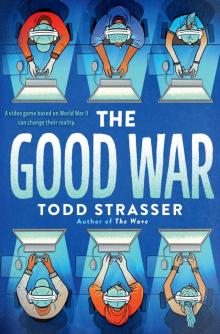 The Good War
The Good War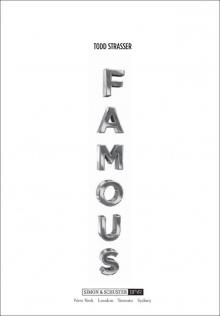 Famous
Famous If I Grow Up
If I Grow Up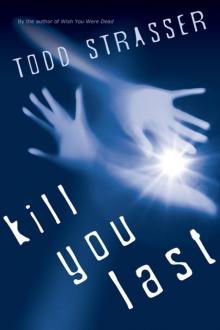 Kill You Last
Kill You Last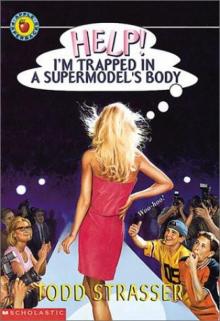 Help! I'm Trapped in a Supermodel's Body
Help! I'm Trapped in a Supermodel's Body Price of Duty
Price of Duty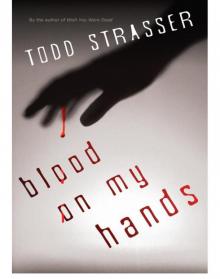 Blood on My Hands
Blood on My Hands Help! I'm Trapped in My Sister's Body
Help! I'm Trapped in My Sister's Body sidewayz glory
sidewayz glory The Beast of Cretacea
The Beast of Cretacea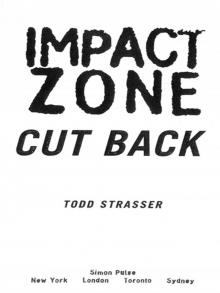 Cut Back
Cut Back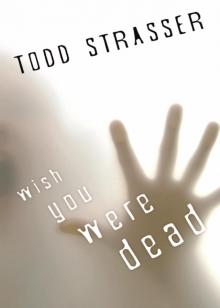 Wish You Were Dead
Wish You Were Dead The Wave
The Wave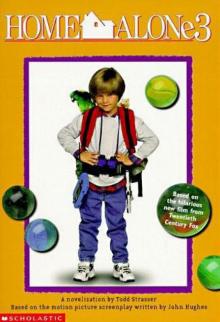 Home Alone 3
Home Alone 3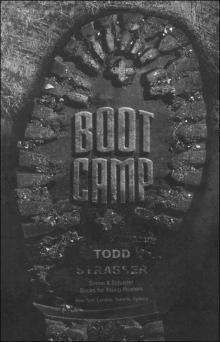 Boot Camp
Boot Camp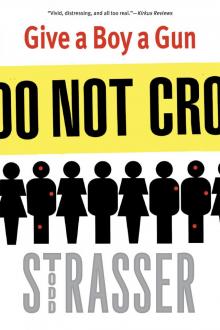 Give a Boy a Gun
Give a Boy a Gun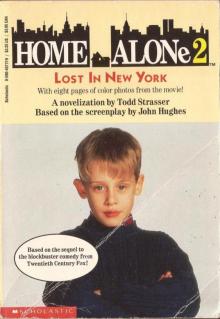 Home Alone 2
Home Alone 2 The Shore
The Shore Can't Get There from Here
Can't Get There from Here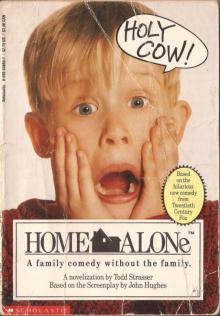 Home Alone
Home Alone Close Out
Close Out No Place
No Place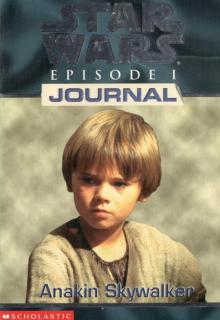 Star Wars - Episode I Journal - Anakin Skywalker
Star Wars - Episode I Journal - Anakin Skywalker